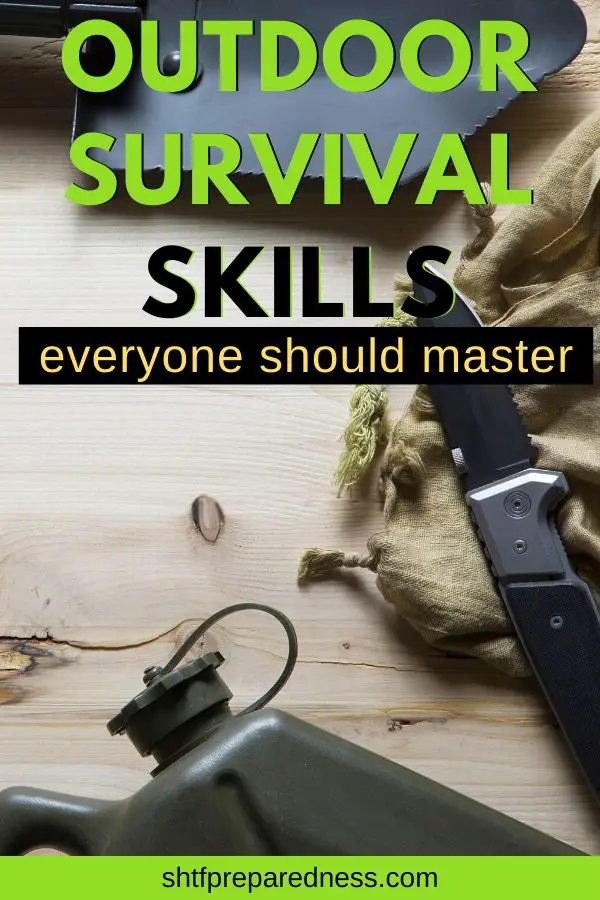SHTFPreparedness may collect a share of sales or other compensation from the links on this page.
If you want to be able to make it on your own in the wilderness, there are a few things that you’re going to have to know first.
Here are just a few basic outdoor survival skills you and your loved ones need to master.
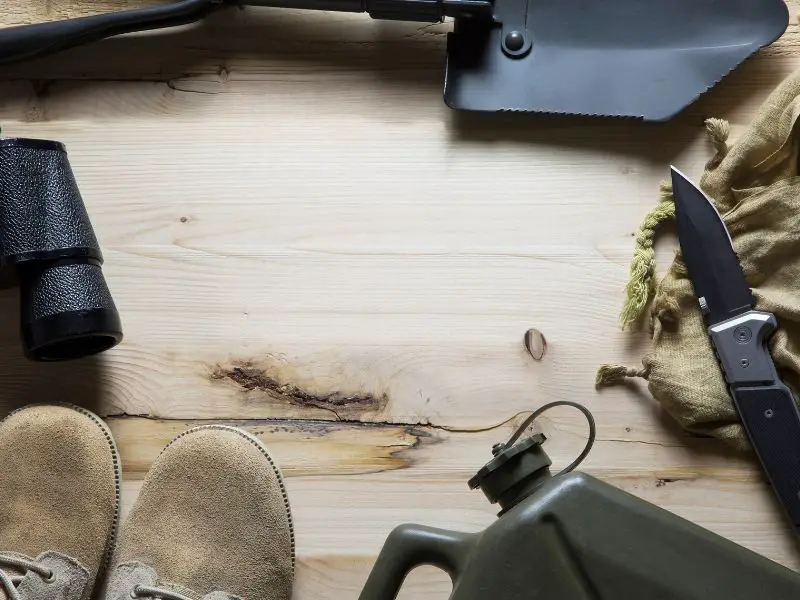
We’ve come a long way since our hunter-gatherer days as humans, and unfortunately, this means that our basic survival instincts don’t work as well as they used to back then.
On the plus side, however, we have access to technology and we can use our brains to get out of a potentially tight situation by preparing for it before it actually happens.
12 Essential Outdoor Survival Skills You Need To Learn
Today, I want to talk about some of the most essential bushcraft skills that anyone should have before trying to test their courage against the wild.
1. Building a Shelter
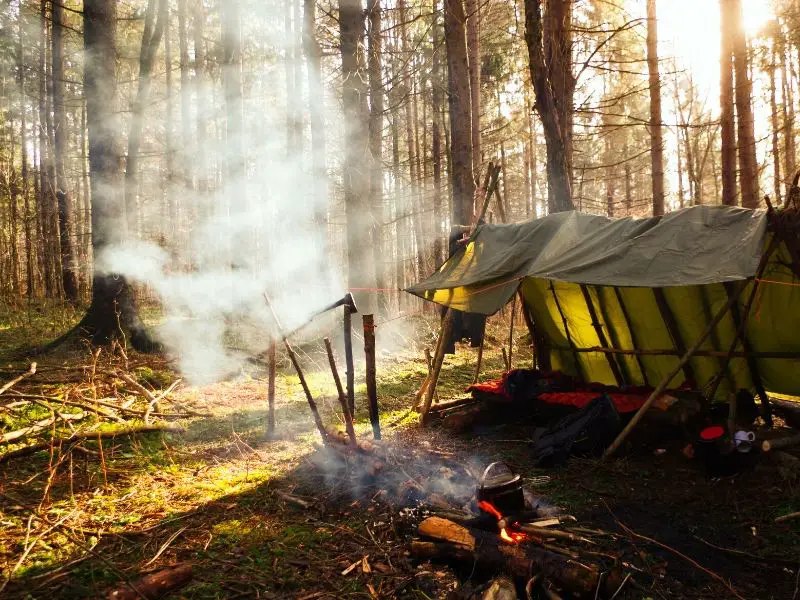
You always need a roof over your head when you’re out in the wilderness, no matter how hot it is. It’s a good idea to bring a tent, but it’s even better to be able to find or build a shelter for yourself.
This kind of skill will come in very handy, especially on rainy nights where it’s absolutely essential that you do not get wet. Learning how to waterproof your tent is a handy skill.
2. Starting a Fire
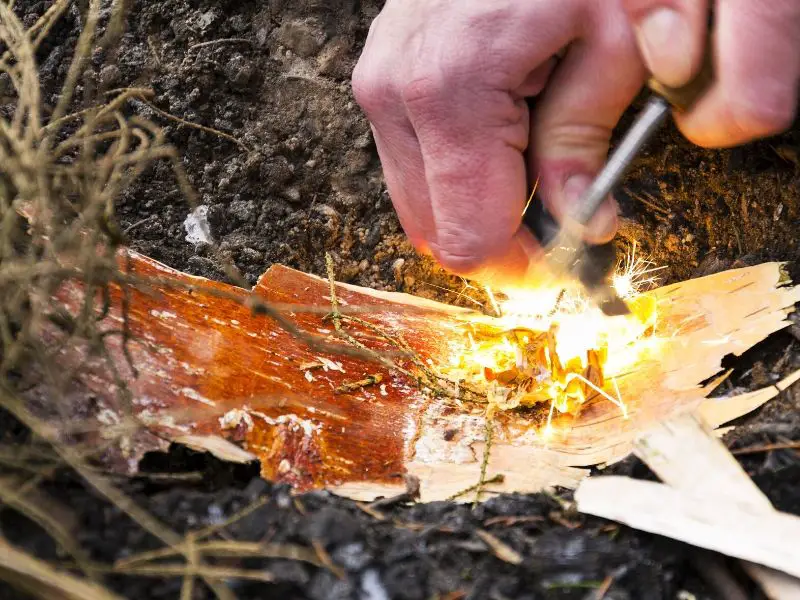
Likewise, don’t think that you should attempt to survive a night in the wilderness without lighting a fire. A campfire will keep you warm, fend off annoying bugs, and serve as illumination.
Starting a fire is a piece of cake if you know how to do it, but make sure you get some practice before your life actually depends on it.
3. Location, Location, Location
Not every place in the woods is suitable for spending the night. You’re going to have to choose wisely before you set up your camp.
It’s a good idea to stay away from any valleys and paths where water may flow. And you should probably camp as far away from an insect nest as possible.
4. Fending off Bugs
Insects are a real nuisance in general, but they can also be quite dangerous. Learn how to fend them off if you’re going to be spending a long time in the wild.
You can use natural things like mint, lavender, and even onion to keep bugs away. A bottle of lavender or mint essential oil is small and lightweight.
Take one along; you’ll be glad you did. Essential oils will not only keep bugs away but also help you sleep better while camping and soothe a bug bite.
5. Finding Edible Plants
Edible Wild Plants: A North American Field Guide to Over 200 Natural Foods The Complete Guide to Edible Wild Plants, Mushrooms, Fruits, and Nuts
The Complete Guide to Edible Wild Plants, Mushrooms, Fruits, and Nuts
If you think that being a good hunter is the only way you can survive in the wilderness, think again. The majority of the food you’ll be eating out there will be plant-based, in the form of nuts and berries.
However, a poisonous berry can sometimes do much more damage than an animal. So, make sure that you know how to identify and forage for wild edibles that are safe to eat.
You should generally stay away from berries that are yellow or white in color. Blue and black ones are almost always edible.
6. Locating Clean Water
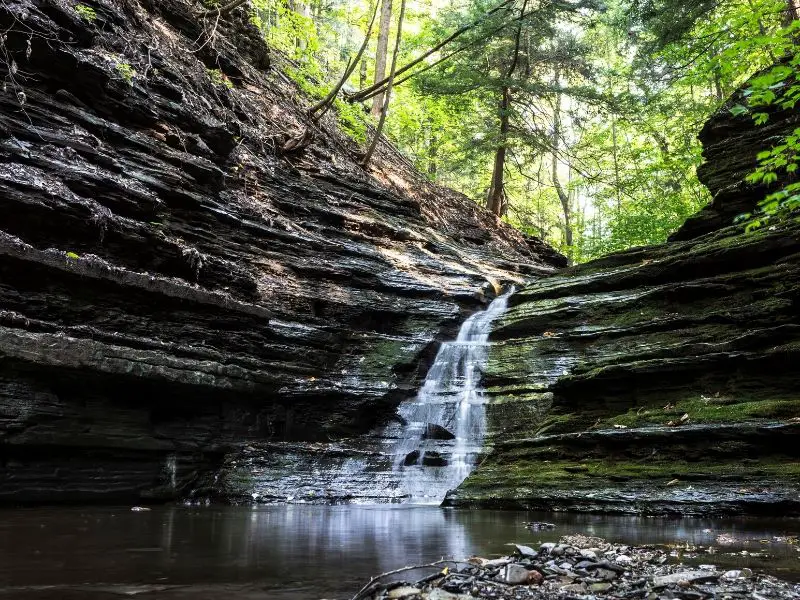
An average human can go for 40 days without eating anything, but only 3 or 4 without water. That means water is your priority in this case. Knowing how to purify water is a critical survival skill.
Using gauze to filter creek water and boiling it can kill any harmful pathogen within the water. That makes it safe to drink in 95% of cases.
I still recommend taking it slow with creek water at first. If you do get sick, it won’t be that bad because you didn’t have too much. Just throw the rest of it away if that happens.
7. Navigation and Orientation

Most people succumb to the wild not because they’re attacked by a vicious, wild animal, but simply because they weren’t careful enough and lost their way.
It’s very, very easy to get lost in an environment that you are not familiar with. Make sure you teach yourself how to navigate before you attempt to go on a wild adventure.
There’s a trick that you can use. Using an ordinary analog watch and the sun to make a compass, and just knowing how to find true north is often enough to make sure you stay on track.
That being said, having a real compass on hand is a big help as well, so that’s also something to take into consideration.
8. Sending Smoke Signals
In case you’re in trouble and unable to contact anyone, sending smoke signals is always a good way to let nearby people know that you need help.
Light a fire with your best fire starter, put some grass and leaves in there to really get the smoke going, then use a moist blanket to cover the fire for a second and quickly take it off.
Do this a few times, and you have given yourself a smoke signal.
9. First Aid
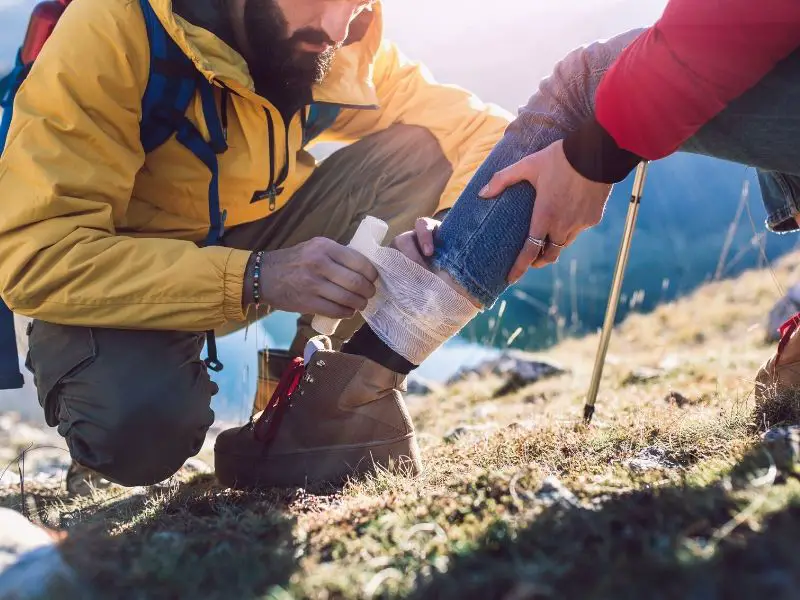
Sometimes, you can’t afford to wait for help. This is especially true when you’ve got an injury on your hands, like a bad cut, a sprain, or even a puncture wound, that needs to be treated ASAP.
Some first aid knowledge is indispensable in such a situation, so make sure you educate yourself with the basics.
Good examples of this would be: how to treat sprains, how to force a dislocated joint back into place, and how to stop a wound from bleeding.
10. Staying Clean and Healthy
A cut or abrasion can easily get infected. And an infection can prove to be quite problematic if you’re unable to treat it.
You should really make sure that your hygiene and your health are top-notch whenever you’re out in the wild.
With no doctor that you can go to, if you get a bad stomach ache or that nasty cut gets inflamed, you’re in big trouble!
11. Hunting
Berries and nuts will keep you satiated for a while, but after a few days, you had better get some protein in you, or your strength is going to wane fast.
You don’t have to go after big game, though; learn how to make snares and traps to catch small animals like squirrels, rabbits, frogs, and lizards.
This will take you much farther than going after a deer that is much faster than you and potentially dangerous.
12. Defending Yourself
Animals are rarely aggressive towards humans. When they are, it is either because they’re very hungry or they’re terrified of you. More often than not, it’s the latter.
Going head-to-head with a wild animal is a really bad idea, so fighting is always the last thing you should resort to.
If a bear or a deer does show signs of aggression, the best thing to do is often just to take a few slow steps back while keeping eye contact.
This will let the animal know that you are not a threat and that it doesn’t have to risk fighting you in order to stay alive.
If you love the outdoors, learning a few basic outdoor survival skills is imperative! It will also help you survive in case of an emergency.
